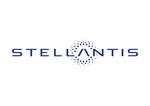Financial News
Stellantis Reports Q3 2024 Consolidated Shipment Estimates
Stellantis Reports Q3 2024 Consolidated Shipment Estimates
Decline reflects inventory reduction initiatives, as well as impacts of new product launches, progress on both are expected to set the Company up more strongly for the future
AMSTERDAM, October 16, 2024 - Stellantis is initiating a practice of publishing global quarterly consolidated shipment estimates and providing commentary on related business trends. The term shipments describes volumes of vehicles delivered to our dealers, distributors, or directly from the Company to retail and fleet customers, which directly drive revenue recognition.
Consolidated shipments for the three months ending September 30, 2024, were an estimated 1,148 thousand units, representing a 20% decline versus the same period in 2023. The shipment decline was more severe than the underlying sales decline in the period of approximately 15%, due to the temporary impacts of transitions in our product portfolio and dealer inventory reduction initiatives.

- In North America, shipments declined approximately 170 thousand units, of which more than 100 thousand units related to pre-announced production cuts intended to reduce dealer inventory as well as product portfolio gaps as the group transitions to new multi-energy offerings with new generation of products to be launched, starting in late 2024 with the Dodge Charger Daytona and Jeep Wagoneer S. However, U.S. sales to final customers supported market share increases month over month during the third quarter from 7.2% in July, to 7.9% in August, to 8.0% in September while inventory was reduced by 50K units (-11.6%) compared to the end of the prior quarter.
- In Enlarged Europe, shipments from our plants were approximately 100 thousand units lower than the prior year due primarily to delayed launches of products based on its Smart Car platform, including the Citroën C3 (which began shipping in September). Outlook for new European product launches is strong with orders of 50K units for the all-new Citroën C3, and 80K units for the all-new Peugeot 3008, for example.
- In Stellantis’ “Third Engine” (2), shipments were in total unchanged, as increases in South America offset declines in Middle East & Africa, China and India & Asia Pacific.
(1) Consolidated shipments only include shipments by Company’s consolidated subsidiaries, which represent new vehicles invoiced to third party (dealers/importers or final customers).
Consolidated shipment volumes for Q3 2024 presented here are unaudited and may be adjusted. Final figures will be provided in our official revenue/shipments report. Analysts should interpret these numbers with the understanding that they are preliminary and subject to change.
(2) The “Third Engine” refers to the aggregation of the South America, Middle East & Africa and China and India & Asia Pacific segments for presentation purposes only.
# # #
About Stellantis
Stellantis N.V. (NYSE: STLA / Euronext Milan: STLAM / Euronext Paris: STLAP) is one of the world’s leading automakers aiming to provide clean, safe and affordable freedom of mobility to all. It’s best known for its unique portfolio of iconic and innovative brands including Abarth, Alfa Romeo, Chrysler, Citroën, Dodge, DS Automobiles, FIAT, Jeep®, Lancia, Maserati, Opel, Peugeot, Ram, Vauxhall, Free2move and Leasys. Stellantis is executing its Dare Forward 2030, a bold strategic plan that paves the way to achieve the ambitious target of becoming a carbon net zero mobility tech company by 2038, with single-digit percentage compensation of the remaining emissions, while creating added value for all stakeholders. For more information, visit www.stellantis.com.
 | @Stellantis |  | Stellantis |  | Stellantis |  | Stellantis | |
| For more information, contact: investor.relations@stellantis.com communications@stellantis.com www.stellantis.com | ||||||||
Safe harbor statement
This document contains forward looking statements. Statements regarding future financial performance and the Company’s expectations as to the achievement of certain targeted metrics, including revenues, industrial free cash flows, vehicle shipments, capital investments, research and development costs and other expenses at any future date or for any future period are forward-looking statements. These statements may include terms such as “may”, “will”, “expect”, “could”, “should”, “intend”, “estimate”, “anticipate”, “believe”, “remain”, “on track”, “design”, “target”, “objective”, “goal”, “forecast”, “projection”, “outlook”, “prospects”, “plan”, or similar terms. Forward-looking statements are not guarantees of future performance. Rather, they are based on the Company’s current state of knowledge, future expectations and projections about future events and are by their nature, subject to inherent risks and uncertainties. They relate to events and depend on circumstances that may or may not occur or exist in the future and, as such, undue reliance should not be placed on them. Actual results may differ materially from those expressed in forward-looking statements as a result of a variety of factors, including: the Company’s ability to launch new products successfully and to maintain vehicle shipment volumes; changes in the global financial markets, general economic environment and changes in demand for automotive products, which is subject to cyclicality; the Company’s ability to successfully manage the industry-wide transition from internal combustion engines to full electrification; the Company’s ability to offer innovative, attractive products and to develop, manufacture and sell vehicles with advanced features including enhanced electrification, connectivity and autonomous-driving characteristics; the Company’s ability to produce or procure electric batteries with competitive performance, cost and at required volumes; the Company’s ability to successfully launch new businesses and integrate acquisitions; a significant malfunction, disruption or security breach compromising information technology systems or the electronic control systems contained in the Company’s vehicles; exchange rate fluctuations, interest rate changes, credit risk and other market risks; increases in costs, disruptions of supply or shortages of raw materials, parts, components and systems used in the Company’s vehicles; changes in local economic and political conditions; changes in trade policy, the imposition of global and regional tariffs or tariffs targeted to the automotive industry, the enactment of tax reforms or other changes in tax laws and regulations; the level of governmental economic incentives available to support the adoption of battery electric vehicles; the impact of increasingly stringent regulations regarding fuel efficiency requirements and reduced greenhouse gas and tailpipe emissions; various types of claims, lawsuits, governmental investigations and other contingencies, including product liability and warranty claims and environmental claims, investigations and lawsuits; material operating expenditures in relation to compliance with environmental, health and safety regulations; the level of competition in the automotive industry, which may increase due to consolidation and new entrants; the Company’s ability to attract and retain experienced management and employees; exposure to shortfalls in the funding of the Company’s defined benefit pension plans; the Company’s ability to provide or arrange for access to adequate financing for dealers and retail customers and associated risks related to the operations of financial services companies; the Company’s ability to access funding to execute its business plan; the Company’s ability to realize anticipated benefits from joint venture arrangements; disruptions arising from political, social and economic instability; risks associated with the Company’s relationships with employees, dealers and suppliers; the Company’s ability to maintain effective internal controls over financial reporting; developments in labor and industrial relations and developments in applicable labor laws; earthquakes or other disasters; and other risks and uncertainties. Any forward-looking statements contained in this document speak only as of the date of this document and the Company disclaims any obligation to update or revise publicly forward-looking statements. Further information concerning the Company and its businesses, including factors that could materially affect the Company’s financial results, is included in the Company’s reports and filings with the U.S. Securities and Exchange Commission and AFM.
Attachment

More News
View More




Recent Quotes
View MoreQuotes delayed at least 20 minutes.
By accessing this page, you agree to the Privacy Policy and Terms Of Service.




